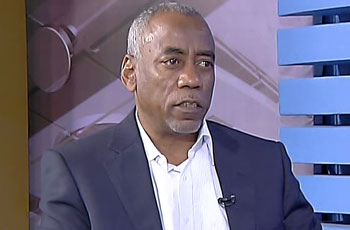Sudan’s external debt hits $42 billion: official
June 16, 2013 (KHARTOUM) – The Sudanese government today announced that the size of its foreign debt rose to a record $42 billion by the end of 2012 and blamed it on accumulation of interest arrears.

He said that the debt started exploding ever since and the situation was exacerbated due of non-payment and interest that accrued as a result.
Sudan’s external debt is estimated to have grown by 27% since 2008 from $32.6 billion to $41.4 billion in 2011. The IMF forecasted the debt level to reach $43.7 billion in 2012 and $45.6 billion in 2013. The latter represents 83% of Sudan’s 2011 GDP, which was $55.1 billion.
Around three quarters of Sudan’s external debt are owed to the Paris Club of creditor nations and other non-member states. The remaining balance is equally divided between commercial banks as well as international and regional financial bodies.
Babiker noted that most of Sudan’s debt is owed to three groups of creditors namely the Paris Club, Arab Group and the London Club.
The official stressed that Khartoum meets all the technical requirements to qualify for debt relief and warned that the hefty debt burden impedes the flow of foreign investments.
But last April an International Monetary Fund (IMF) official said that it will be near impossible for Sudan to secure debt relief even if it satisfied technical and economic requirements.
“I’m not saying this is impossible but it is difficult because it is linked to political issues which requires a public relations effort with member countries” IMF deputy director of the Middle East and Central Asia department Edward Jameel said during a visit to Khartoum.
He pointed out that any debt relief deal with Sudan would require the unanimous consent of all 55 countries in Paris Club which he suggested would be improbable.
Babiker said that his country has reached an agreement with African Union to work on debt relief through a formula known as the “zero solution”. He stressed that stability of relations with South Sudan would help boost Sudan’s chances in this regard.
He also acknowledged that U.S. economic sanctions on Sudan represents a major obstacle in resolving the debt issue because it is based on complex legislations that are sometimes linked to the security situation in the country.
Khartoum and Juba are to sort out the issue of dividing the portion of pre-partition external debt each side will carry.
The head of Sudan’s negotiating team on post-secession issues Idris Abdel-Gader stated last March that the two countries agreed to work together to address Sudan’s debt and reach out to donors in a bid to have it written it off within two years.
Abdel-Gader added that if the debt relief was not possible, then the only remaining option is to split the debt between the two countries.
(ST)
